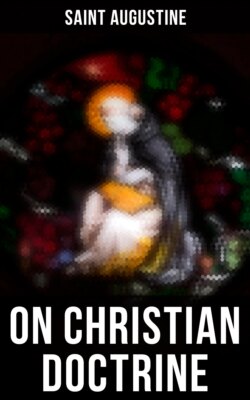Читать книгу Saint Augustine: On Christian Doctrine - Saint Bishop of Hippo Augustine - Страница 40
На сайте Литреса книга снята с продажи.
Chapter 36.
That Interpretation of Scripture Which Builds Us Up in Love is Not Perniciously Deceptive Nor Mendacious, Even Though It Be Faulty. The Interpreter, However, Should Be Corrected.
ОглавлениеTable of Contents
40. Whoever, then, thinks that he understands the Holy Scriptures, or any part of them, but puts such an interpretation upon them as does not tend to build up this twofold love of God and our neighbor, does not yet understand them as he ought. If, on the other hand, a man draws a meaning from them that may be used for the building up of love, even though he does not happen upon the precise meaning which the author whom he reads intended to express in that place, his error is not pernicious, and he is wholly clear from the charge of deception. For there is involved in deception the intention to say what is false; and we find plenty of people who intend to deceive, but nobody who wishes to be deceived. Since, then, the man who knows practises deceit, and the ignorant man is practised upon, it is quite clear that in any particular case the man who is deceived is a better man than he who deceives, seeing that it is better to suffer than to commit injustice. Now every man who lies commits an injustice; and if any man thinks that a lie is ever useful, he must think that injustice is sometimes useful. For no liar keeps faith in the matter about which he lies. He wishes, of course, that the man to whom he lies should place confidence in him; and yet he betrays his confidence by lying to him. Now every man who breaks faith is unjust. Either, then, injustice is sometimes useful (which is impossible), or a lie is never useful.
41. Whoever takes another meaning out of Scripture than the writer intended, goes astray, but not through any falsehood in Scripture. Nevertheless, as I was going to say, if his mistaken interpretation tends to build up love, which is the end of the commandment, he goes astray in much the same way as a man who by mistake quits the high road, but yet reaches through the fields the same place to which the road leads. He is to be corrected, however, and to be shown how much better it is not to quit the straight road, lest, if he get into a habit of going astray, he may sometimes take cross roads, or even go in the wrong direction altogether.
